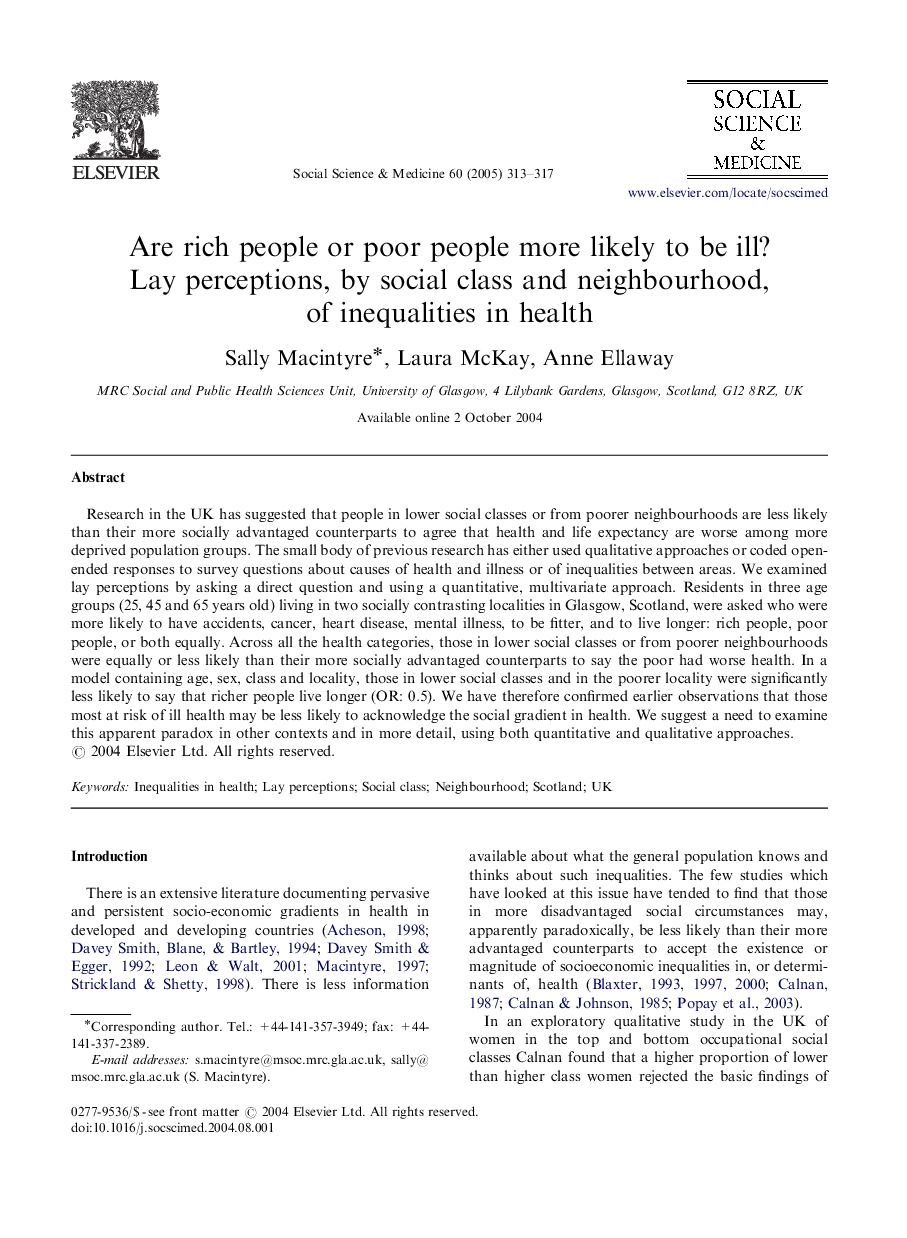| کد مقاله | کد نشریه | سال انتشار | مقاله انگلیسی | نسخه تمام متن |
|---|---|---|---|---|
| 10473316 | 927737 | 2005 | 5 صفحه PDF | دانلود رایگان |
عنوان انگلیسی مقاله ISI
Are rich people or poor people more likely to be ill? Lay perceptions, by social class and neighbourhood, of inequalities in health
دانلود مقاله + سفارش ترجمه
دانلود مقاله ISI انگلیسی
رایگان برای ایرانیان
کلمات کلیدی
موضوعات مرتبط
علوم پزشکی و سلامت
پزشکی و دندانپزشکی
سیاست های بهداشت و سلامت عمومی
پیش نمایش صفحه اول مقاله

چکیده انگلیسی
Research in the UK has suggested that people in lower social classes or from poorer neighbourhoods are less likely than their more socially advantaged counterparts to agree that health and life expectancy are worse among more deprived population groups. The small body of previous research has either used qualitative approaches or coded open-ended responses to survey questions about causes of health and illness or of inequalities between areas. We examined lay perceptions by asking a direct question and using a quantitative, multivariate approach. Residents in three age groups (25, 45 and 65 years old) living in two socially contrasting localities in Glasgow, Scotland, were asked who were more likely to have accidents, cancer, heart disease, mental illness, to be fitter, and to live longer: rich people, poor people, or both equally. Across all the health categories, those in lower social classes or from poorer neighbourhoods were equally or less likely than their more socially advantaged counterparts to say the poor had worse health. In a model containing age, sex, class and locality, those in lower social classes and in the poorer locality were significantly less likely to say that richer people live longer (OR: 0.5). We have therefore confirmed earlier observations that those most at risk of ill health may be less likely to acknowledge the social gradient in health. We suggest a need to examine this apparent paradox in other contexts and in more detail, using both quantitative and qualitative approaches.
ناشر
Database: Elsevier - ScienceDirect (ساینس دایرکت)
Journal: Social Science & Medicine - Volume 60, Issue 2, January 2005, Pages 313-317
Journal: Social Science & Medicine - Volume 60, Issue 2, January 2005, Pages 313-317
نویسندگان
Sally Macintyre, Laura McKay, Anne Ellaway,